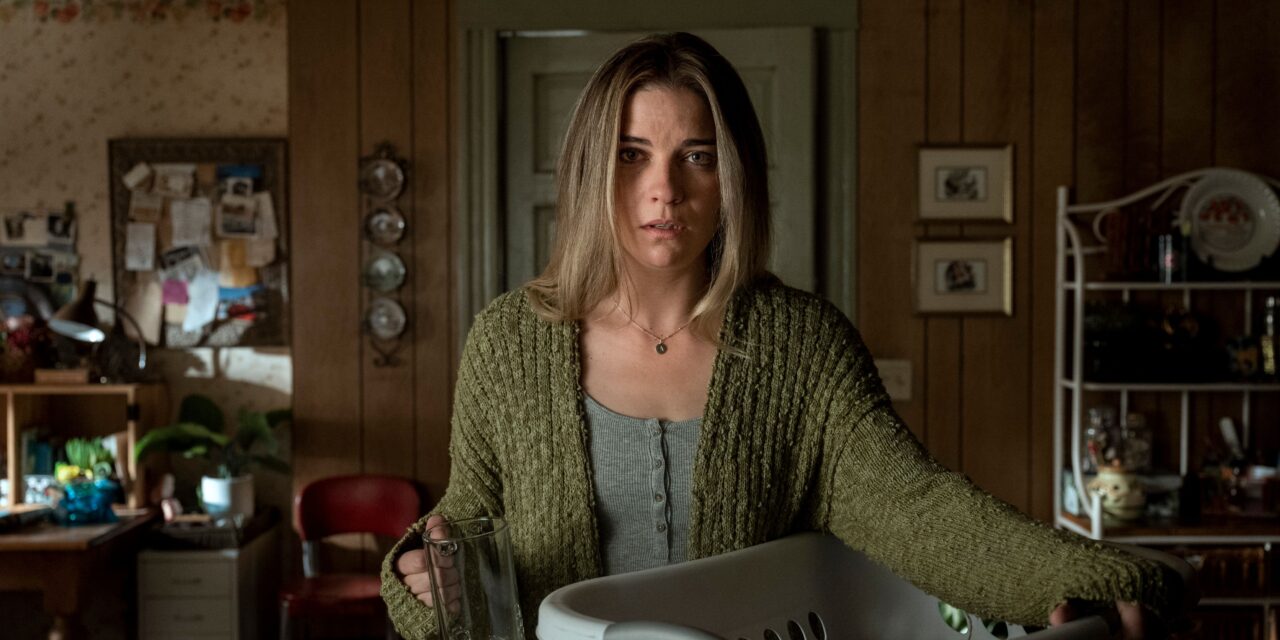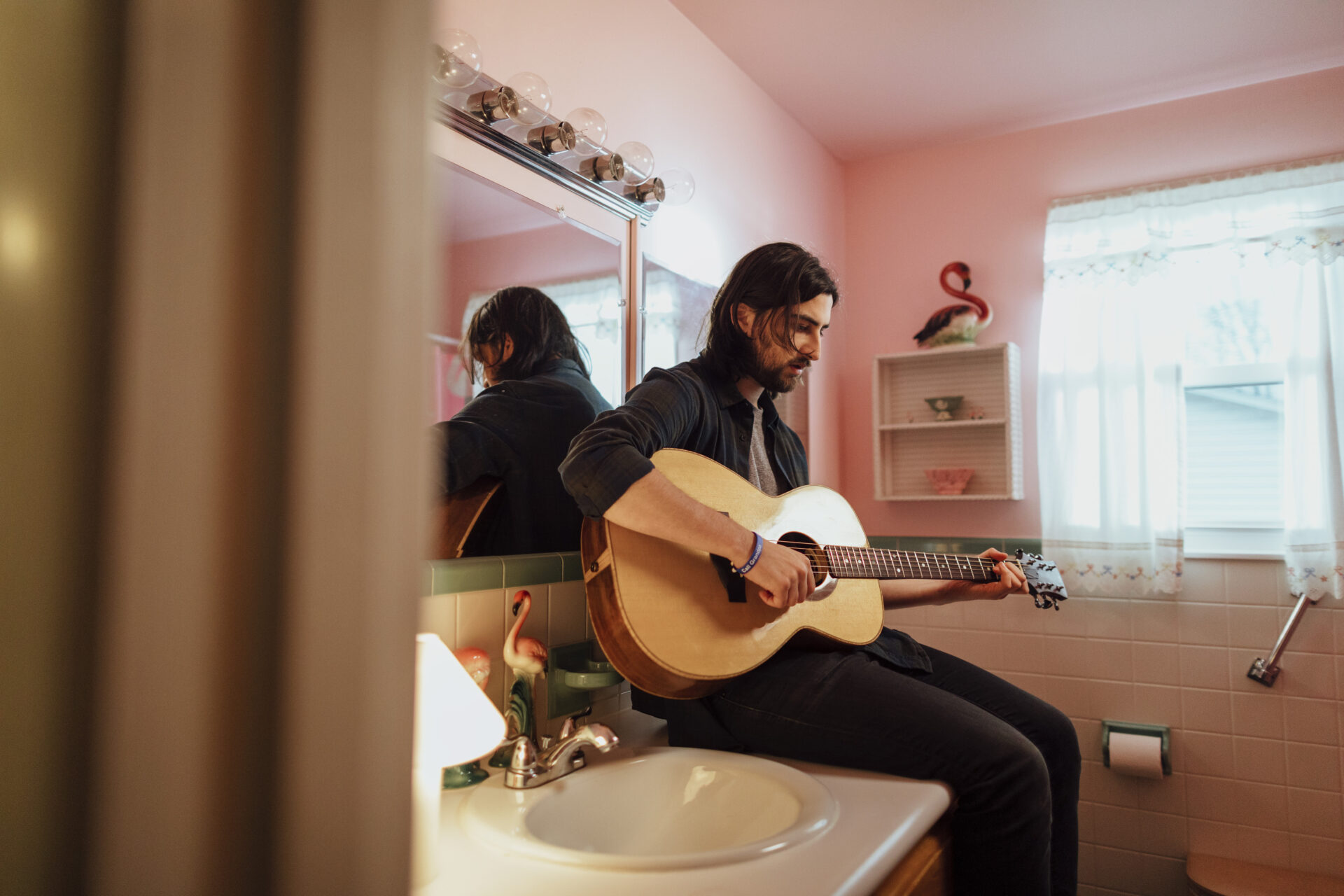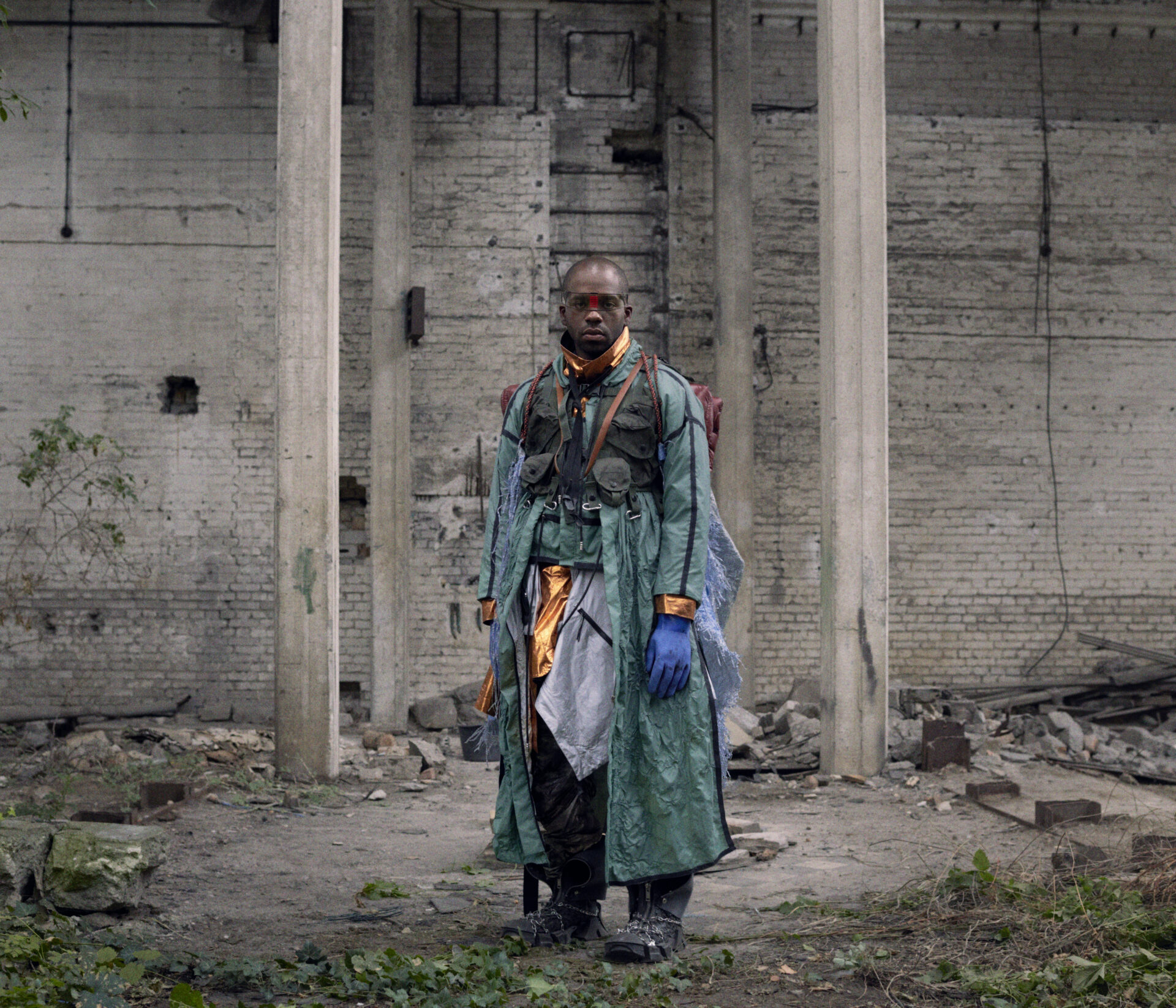At first glance, Kevin Can F**k Himself seems like a typical family sitcom. It’s complete with prototypical characters, laugh tracks, and problem-of-the-week situations that many shows have patterned themselves for years. However, as you dive deeper into its clever setup, you’ll discover that creator/executive producer Valerie Armstrong has a lot of smart things to say. Within Worcester, Massachusetts, Allison McRoberts (Annie Murphy) has grown increasingly unhappy in her marriage to husband, Kevin (Eric Petersen). He’s not nice to her and often does things to irritate her and mess with her life. It gets to a point where Allison decides that the only way out is to plan to kill him.
Now, the show displays things from two different perspectives. First, it looks like any Monday night sitcom with multi-cam favoring Kevin and his best friend, Neil’s (Alex Bonifer) perspectives. Allison is often the point of ridicule. However, the show switches perspectives into reality purely from the view of Allison. Here, the audience gets to see the ramifications of Kevin’s accumulation of abuse on Allison and why it’s an absolute necessity for her to gain control back. The one person who she finds friendship in is Patricia “Patty” O’Connor (Mary Hollis Inboden), Neil’s sister. They go through a gauntlet of trouble, but even with the destruction, their companionship is essential.
Yes, Armstrong speaks to the still prevalent themes of prime-time shows, past and present. But even more important, Kevin Can F**k Himself puts the spotlight on problematic tropes that have found a home under the guise of comedic beats for decades.
Slight Spoilers For Season One Ahead.
When I first watched Kevin Can F**k Himself, I immediately thought back to shows like The Honeymooners and Married With Children. You don’t pick up on it when you are younger, but the wife is often the butt of the joke. Things like hints at abuse and misogyny were just casually dropped for the audience to laugh at. I like that your show both shows how absurd that world can be mixed with a reality that we don’t get to see on the other side.
Oh, absolutely. I mean, it started with The Honeymooners, but it by no means ended with that show. Watching King of Queens, it still makes me laugh – but those jokes are really rough if you think about them for more than the allotted last time. I never thought about them. I watched a ton of sitcoms growing up and loved them. It was in writing the show that I thought about it. Even when the wife of those shows has a voice and pushes back and expresses her discontent, it’s met with laughter. It’s always inherently from the guy’s perspective. I think that’s a function of having rooms be so predominantly male for so long. Guys would come in and talk about their weekends, and it would be the plot of that week’s episode.
I certainly don’t fault them for that. However, I think that a perspective was lost in that retelling of marriage. With this show, I didn’t want to rewrite a sitcom or change what it is. Our sitcom, no joke in there, wouldn’t be seen on a CBS show. I don’t even think of it as in her head, or a show within a show. It’s just the way this world is presented. When Kevin, his father, Peter (Brian Howe) or Neil are on-screen, they get to live in a multi-cam. They get the benefit of the doubt of these people laughing and all of their jokes. They get to be boys forever – blameless.
The minute that Alison is away from them, she has to pick up the pieces of what they left behind. If they are distractions, she’s the one who actually has to face reality. And a lot of other people. Not every man in our show creates a multi-cam. But certain men do. It’s a commentary, not just on the sitcoms of the past. I think our show is its own show at this point. We’ve sort of made the commentary of that, but I think the reason I want to keep telling the story is that it’s actually about toxic masculinity. It’s not necessarily just about sitcoms.
I like that. You never see these shows predominately from the female character’s perspective. Kevin is very problematic, but it’s not in a blunt way. It’s subtle. He calls the cops on her. Calls her OBGYN among other things. We see him in the ‘sitcom’ world and not the other one. Without giving anything away about season two, is that something you’re planning to build on?
I think of those things that Kevin has done, and the only reason we even think to discuss them is that we see the single camera at ramifications like you said. Such as Allison having to deal with being pulled over. Whereas normally in that sitcom, it would just be a joke and then forgotten. I think we only think about the jokes in the sitcom more because we see Allison as a person. Kevin gets to live in that sitcom. At the end of the season, Neal crosses such a line that he doesn’t get to live there anymore. He’s going to have to face some consequences.
I mean, he put his hands on a woman. Neal did something bad enough that even that studio audience couldn’t laugh at it anymore. So, he’s going to be subjected to the real world like how the rest of us are. I wanted to tell that story of what it was like to be a man in that world for so long, and then sort of lose it. To have him reckon with the destruction that he’s caused. We definitely explore more of the format stuff in the second season a lot. A lot of it is through Neil, and I’m never going to let him off the hook for what he did. But I don’t think that means you can’t tell stories about him.
Allison and Patty’s relationship hits a breaking point in the season finale. It looks like they are about to go their separate ways when the thing with Neil happens. Within this world, their friendship keeps them going. They may do a lot of bad things to each other, but given Neil, Kevin, and his dad have a brotherhood that blocks them out. I can tell that this friendship was very important for you to develop.
Yeah, it was the thing that made the show worth making to me. The situation that broke open the pilot in my head when I was thinking about it; I mean, certainly nobody was asking me to think about this. I wrote it on my own because I felt like it was something I wanted to say. That relationship is what made the show. To me, it is not a show about a toxic marriage; it is a show about two women. Those are stories I want to tell forever. I thought it was very interesting that these two women shared space for 10-15 years and never thought about the other one as an ally. They always thought of them as an adversary. Like she’s that kind of woman. There’s only space for one of us here to do well or to be comfortable or to be accepted. The truth is, they were each other saviors – they were across the room from each other the whole time. And that’s heartbreaking to me. I find such satisfaction as a viewer and watching women realize they like each other and become friends. It is one of my favorite genres of content.
So, I wanted to tell one of those stories. As you said, that their relationship isn’t complicated. Allison thought of herself as a victim for so long that she didn’t think of herself as capable of victimizing others. It that takes a while to realize that not everything is okay because you’re trying to get out of a terrible circumstance. It doesn’t excuse all of your behavior. Patty is such a helper. She doesn’t seem like it, but she is pretty codependent. She feels like she’s useful when she helps. That’s why her brother still lives in her house all these years later. Patty takes care of people. It’s a tough combination – somebody who will take and someone who will constantly give. I think they sincerely love each other and have a deep relationship, but that doesn’t mean that’s going to be easy all the time.
I have to give credit to Anna Dokoza, our director, for shooting the last moments of the season finale so brilliantly. It turned out better than it was then I had in my head. What I loved about the end when things broke and is that you have Allison saying, “fine, I won’t ask for your help anymore.”. Patty says, “Fine, I won’t offer it,” and going their separate ways. But when it comes down to it, they show up for each other. They will always show up for each other, even though they’re saying they won’t. It’s true to life, you know? You bury your shit when things go down. I got such satisfaction watching them show up for each other at that last moment.
I wanted to talk about Allison because I find her such an intriguing character. There’s a particular scene in episode two where she speaks to a librarian about her situation, and she replies, “well, why don’t you just leave?” As if just that easy to up and start a new life. It’s
I’m never asking people to agree that she should kill him. I’m asking people to understand why she thinks she has to. And I really tried to put a bit of my own frustration into Allison and that moment with a librarian. That was a note that I kept getting in, making the show and writing the pilot. Why wouldn’t she just leave? It’s such a privileged position to be able to leave. I mean, there’s a whole arc in Big Little Lies about how Nicole Kidman is trying to will herself to leave her physically abusive husband. She has all the money in the world and an apartment completely ready to go. Yet, she is still terrified and not quite able to.
Alison has nothing. Kevin has stripped away every vestige of her life slowly without her even noticing. The only thing that has woken her up and pulled her out of the stasis is this crazy idea that she should kill him. As the season goes on, I don’t think that you have to keep re justifying it. To me, Allison has to keep going. Because if she doesn’t, she’s convinced that she’s going to go back to the person she was. So, it’s a lot less in my head about whether Kevin dies or whether he deserves it – more so about the psychology of somebody who says, “I have to keep moving. Otherwise, I’m going to go back to this person I hate, and I can’t do that.”
There are moments throughout the season where you can sort of see her doubt and humanity creep in. In our seventh episode, she keeps bursting into tears and doesn’t know why. It’s because you just hired someone to kill your husband. Maybe that’s why you’re finally dealing with some emotion. But she buries it and keeps going because what else can she do? And I thought that is very interesting for a female character. I don’t feel like I see that all that often.
Photo Credit: AMC Networks
SEASON 1 of the dark comedy series KEVIN CAN F**K HIMSELF













